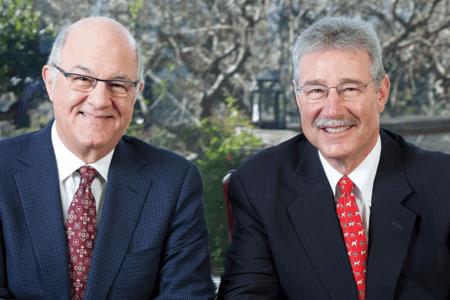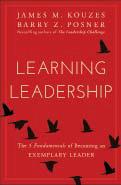5 Fundamentals For Becoming An Exemplary Leader
By Jim Kouzes and Barry Posner
 Leadership potential is everywhere. And yet, organizations report they have major concerns about the lack of leadership bench strength. Why is this? It’s definitely not because there aren’t enough people capable of leading. In fact, our global research shows that only one person in a million lacks the skills to lead. What’s holding back too many people is a host of inhibiting assumptions, organizational practices that foster environments unsuitable for and inhospitable to growth, and the failure to make leadership development a daily habit.
Leadership potential is everywhere. And yet, organizations report they have major concerns about the lack of leadership bench strength. Why is this? It’s definitely not because there aren’t enough people capable of leading. In fact, our global research shows that only one person in a million lacks the skills to lead. What’s holding back too many people is a host of inhibiting assumptions, organizational practices that foster environments unsuitable for and inhospitable to growth, and the failure to make leadership development a daily habit.
Leadership is a set of skills, abilities, and attitudes that are learnable. Leadership is not a talent. Nor is it a strength, a position, a gene, a birthright, or something that some people have and others don’t. We find it at all levels, among men and women, young and old, in all countries, all ethnic groups. Leadership practices associated with exemplary leadership are universal and within the capacity of nearly everyone to learn. Clearly, learning is the master skill.
You can improve your leadership if — and it’s a big IF — you understand and attend to these five fundamentals of becoming an exemplary leader:
- BELIEVE IN YOURSELF.
Believing in oneself is the essential first step in developing leadership competencies. The best leaders are learners, and no one can achieve mastery until and unless they truly decide that inside them there is a person who can make a difference and learn to be a better leader than they are right now. - ASPIRE TO EXCEL.
To become exemplary leaders, people have to determine what they care most about and why they want to lead. Leaders with values-based motivations are the most likely to excel. They also must have a clear image of the kind of leader they want to be in the future — and the legacy they want to leave for others. - CHALLENGE YOURSELF.
Challenging oneself is critical to learning leadership. Leaders have to seek new experiences and test themselves. There will be inevitable setbacks and failures along the way that require curiosity, grit, courage, and resilience in order to persist in learning and becoming the best. - ENGAGE SUPPORT.
One can’t lead alone, and one can’t learn alone. It is essential to get support and coaching on the path to achieving excellence. Whether it’s family, managers at work, or professional coaches, leaders need the advice, feedback, care, and support of others. - PRACTICE DELIBERATELY.
No one gets better at anything without continuous practice. Exemplary leaders spend more time practicing than ordinary leaders. Simply being in the role of a leader is insufficient. To achieve mastery, leaders must set improvement goals, participate in designed learning experiences, ask for feedback, and get coaching. They also put in the time every day and make learning leadership a daily habit.
Here’s one habit you can start right now to apply these five fundamentals. At the end of every day, ask yourself this question: What have I done today to improve so that I am a better leader today than I was yesterday? Write down your answer. Do this every day, and in 10 years, that’s 3,650 ways you’ve contributed to becoming your best self.

